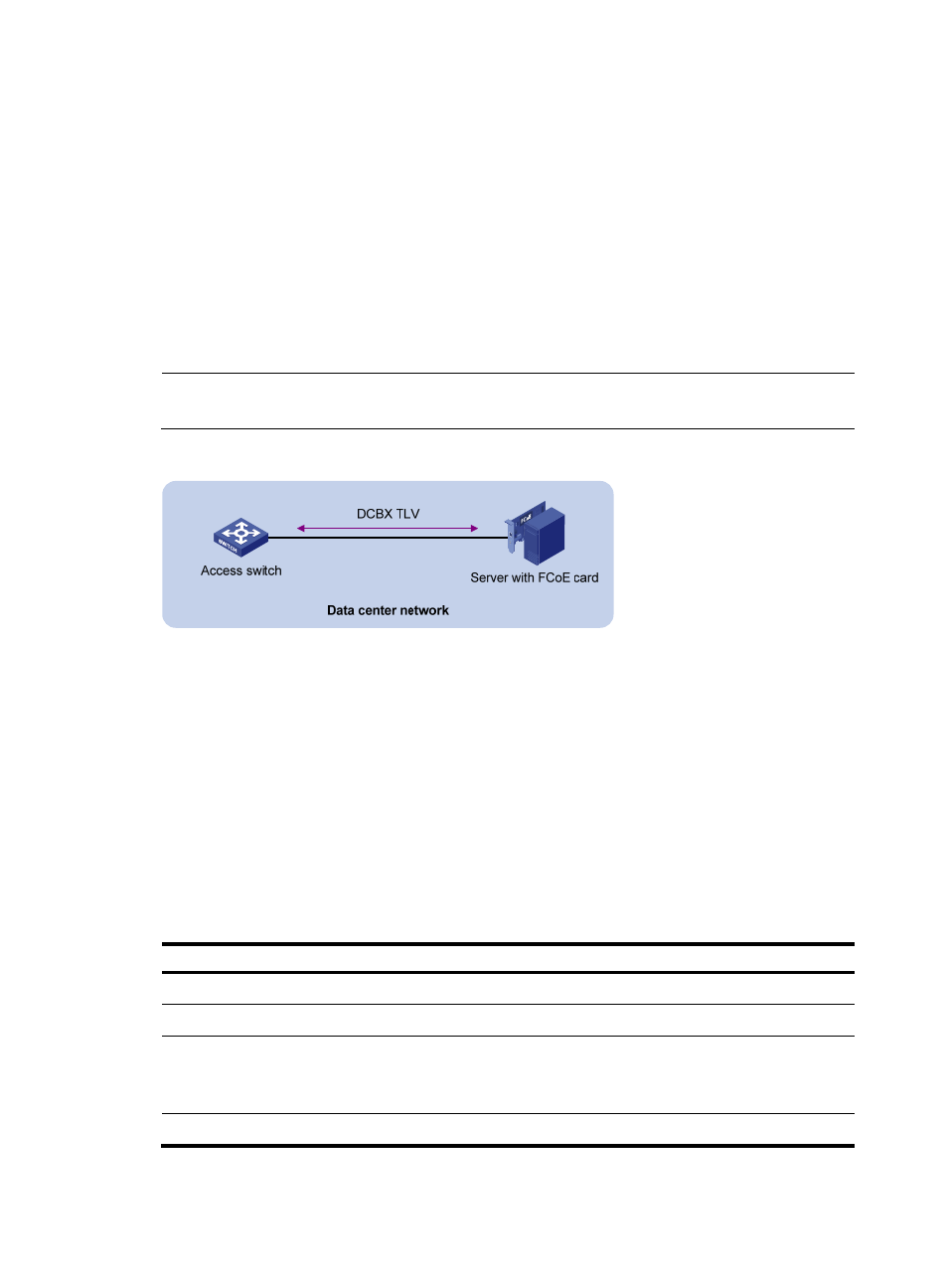Dcbx configuration task list, Configuring the private vlan – H3C Technologies H3C S12500-X Series Switches User Manual
Page 177

166
Bridging Exchange Protocol (DCBX) to negotiate and remotely configure the bridge capability of
network elements.
DCBX has three self-adaptable versions: DCB Capability Exchange Protocol Specification Rev 1.00, DCB
Capability Exchange Protocol Base Specification Rev 1.01, and IEEE Std 802.1Qaz™-2011 (Media
Access Control (MAC) Bridges and Virtual Bridged Local Area Networks-Amendment 18: Enhanced
Transmission Selection for Bandwidth Sharing Between Traffic Classes). DCBX offers the following
functions:
•
Discovers the peer devices' capabilities and determines whether devices at both ends support these
capabilities.
•
Detects configuration errors on peer devices.
•
Remotely configures the peer device if the peer device accepts the configuration.
NOTE:
H3C devices support only the remote configuration function.
Figure 52 DCBX application scenario
DCBX enables lossless packet transmission on DCE networks.
As shown in
, DCBX applies to an FCoE based data center network, and operates on an access
switch. DCBX enables the switch to control the server adapter, and simplifies the configuration and
guarantees configuration consistency. DCBX extends LLDP by using the IEEE 802.1 organizationally
specific TLVs (DCBX TLVs) to transmit DCBX data, including Application Protocol (APP), Enhanced
Transmission Selection (ETS), and PFC in DCBX Rev 1.00 and DCBX Rev 1.01, and including ETS
Configuration, ETS Recommendation, PFC, and APP in IEEE Std 802.1Qaz™-2011.
H3C devices can send the these types of DCBX information to a server adapter supporting FCoE, but
they cannot receive them.
DCBX configuration task list
Tasks at a glance
Enabling LLDP and DCBX TLV advertising
(Optional.) Configuring ETS parameters:
•
Configuring the 802.1p-to-local priority mapping
•
Configuring group-based WRR queuing
